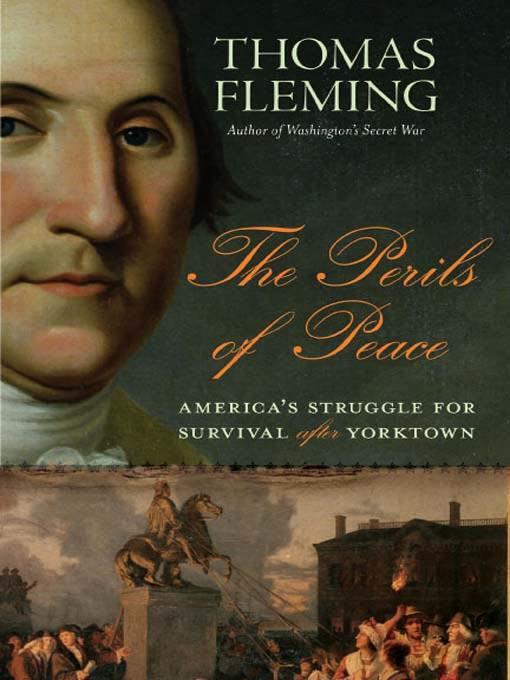
The Perils of Peace
America's Struggle for Survival After Yorktown
کتاب های مرتبط
- اطلاعات
- نقد و بررسی
- دیدگاه کاربران
نقد و بررسی

August 6, 2007
The battle of Yorktown in October 1781 and the surrender of Cornwallis's army to Washington is popularly thought to have made the success of the American Revolution a done deal. True, the war officially ended two years later—but surely its conclusion was only a formality? Novelist and historian Fleming (Washington's Secret War
) persuasively argues that, in fact, final victory was by no means inevitable. Indeed, even before Yorktown, the Continental Army had fallen to just 5,835 men and the country was bankrupt, while 26,000 British troops and armed Loyalists remained in North America. Ironically, the battle itself was “potentially ruinous,” writes Fleming: Washington could ill afford to keep his army in the field—as the British well knew. Their post-Yorktown policy was to drag out diplomatic negotiations for as long as possible until Americans tired of war agreed to reunite with the empire. It was left to Washington to avoid these “perils of peace” and make the republic a reality. Fleming is a narrative historian with a wide following, and his latest, while not groundbreaking in terms of scholarly research, tells an important story from an unusual perspective. 16 pages of b&w photos.

September 1, 2007
The prolific Fleming ("Washington's Secret War") discusses the end of the American Revolution and the peace process involving America, Britain, and France. He begins with the British defeat at Yorktown and ends with Washington's tearful resignation from public life at the end of 1783. (Later, of course, Washington went on to become President.) Fleming refers to this resignation speech as "the most important moment in American history" because, in relinquishing absolute power to become a private citizen, Washington affirmed his faith in a government by the people. Fleming has a tendency to believe that his books tread new ground or uncover some long-kept secret. He claims that the purpose of this work is to "explore a hitherto-untold story." But his notes cite mostly secondary sources, some of which cover the same period and themes. His narrative provides a good, basic understanding of the conflict between and among the Continental Congress and Washington's army and of the Revolution's end and the complex diplomatic situation arising in Europe. General readers should be satisfied, but academics will wants something more scholarly. Recommended for public libraries.Matthew J. Wayman, Pennsylvania State Univ., Abington Coll. Lib.
Copyright 2007 Library Journal, LLC Used with permission.

























دیدگاه کاربران